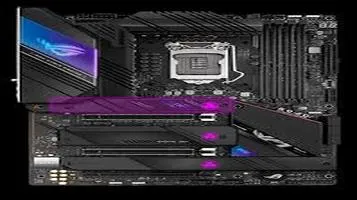Smart Light Bulbs: Illuminating the Future of Home Lighting
Smart light bulbs are innovative lighting solutions that integrate with modern technology to offer enhanced control and energy efficiency. Unlike traditional bulbs, smart light bulbs can be controlled remotely via smartphone apps, voice assistants like Amazon Alexa or Google Assistant, and even through automated schedules. This connectivity allows users to adjust brightness, color, and power status from anywhere, providing both convenience and customization. Many models offer features such as color-changing capabilities, dimming options, and compatibility with smart home ecosystems. They are designed to be energy-efficient, often using LED technology to reduce electricity consumption and extend lifespan. Smart light bulbs are ideal for creating dynamic lighting environments, enhancing security with remote access, and contributing to a more sustainable living space.

In an age where technology is seamlessly integrating with all aspects of our daily lives, smart light bulbs have emerged as a revolutionary advancement in home lighting. These innovative devices offer more than just illumination; they provide unprecedented control, energy efficiency, and a host of features that elevate the ambiance and functionality of any living space. This review delves into the myriad benefits, potential drawbacks, and overall impact of smart light bulbs, helping you decide if they are a worthy addition to your home.
Unboxing and Setup
The initial experience of unboxing and setting up smart light bulbs is generally straightforward and user-friendly. Most smart bulbs come with an easy-to-follow manual and require minimal technical know-how to get started. Typically, you screw the bulb into a socket, download the corresponding app on your smartphone, and follow the on-screen instructions to connect the bulb to your home Wi-Fi network. Within minutes, you can have your home lighting system up and running, ready to be controlled from the palm of your hand.
Features and Functionality
Smart light bulbs come packed with features that extend far beyond traditional lighting solutions. One of the most compelling aspects is the ability to control the bulbs remotely via a smartphone app. Whether you’re lounging on the couch or halfway across the globe, you can turn lights on or off, dim them, or even change their color with a simple tap on your screen.
Many smart bulbs are compatible with voice assistants like Amazon Alexa, Google Assistant, and Apple HomeKit. This integration allows for hands-free operation, enabling you to control your lighting through voice commands. Imagine walking into your home with your hands full and simply saying, “Alexa, turn on the living room lights.” It's a convenience that quickly becomes indispensable.
Customization and Scheduling
One of the standout features of smart light bulbs is their customization capabilities. The ability to change the color and intensity of the light means you can tailor your lighting to suit any mood or occasion. Hosting a dinner party? Set the lights to a warm, inviting hue. Need to focus on work? Opt for a bright, cool white light. The possibilities are virtually endless.
Moreover, smart bulbs often come with scheduling features, allowing you to automate your lighting based on your daily routine. You can set the lights to gradually brighten in the morning, mimicking a natural sunrise to help you wake up more comfortably. Conversely, you can program them to dim in the evening, creating a relaxing atmosphere as you wind down for the night.
Energy Efficiency and Longevity
Energy efficiency is another significant advantage of smart light bulbs. Most of these bulbs use LED technology, which consumes far less energy compared to traditional incandescent or even compact fluorescent bulbs. This energy efficiency translates to lower electricity bills and a reduced carbon footprint, making smart bulbs an environmentally friendly choice.
In addition to being energy-efficient, smart bulbs are designed to last longer. The average lifespan of an LED smart bulb can range from 15,000 to 25,000 hours, far surpassing the longevity of traditional bulbs. This extended lifespan means less frequent replacements, further contributing to cost savings over time.
Security and Peace of Mind
Smart light bulbs also offer added security benefits. With remote control capabilities, you can turn your lights on and off while you’re away from home, giving the impression that someone is there. This can be a deterrent to potential intruders. Some advanced systems even allow for integration with security cameras and motion sensors, providing a comprehensive security solution.
Potential Drawbacks
Despite their numerous advantages, smart light bulbs are not without their drawbacks. One of the primary concerns is cost. Smart bulbs are generally more expensive than traditional bulbs, which can be a barrier for some consumers. However, the long-term savings on energy bills and the extended lifespan can offset this initial investment.
Another potential issue is compatibility. Not all smart bulbs work with every type of fixture or home automation system. It’s crucial to ensure that the bulbs you purchase are compatible with your existing setup, including your Wi-Fi network and any smart home devices you may already have.
Finally, there’s the concern of data privacy. Like any connected device, smart bulbs can be vulnerable to hacking. Manufacturers are continually improving security measures, but it’s essential to keep your devices updated with the latest firmware and to use strong, unique passwords for your smart home system.
Conclusion
Smart light bulbs represent a significant leap forward in home lighting technology. Their convenience, customization options, energy efficiency, and added security benefits make them a compelling choice for modern homes. While the initial cost and potential compatibility issues may be considerations, the long-term advantages far outweigh these concerns. Whether you’re a tech enthusiast looking to automate your home or simply someone seeking to enhance your living space, smart light bulbs offer a bright and promising solution. With their ability to adapt to your lifestyle and provide a personalized lighting experience, they truly illuminate the future of home lighting.






